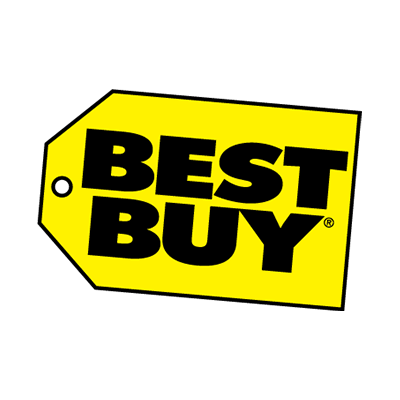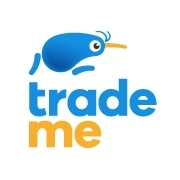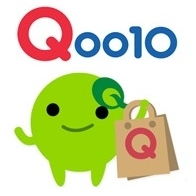We support 78 platforms and brands worldwide
Frequently asked questions
Online marketplaces are ecommerce platforms where there are a great number of merchants that offer goods and services to customers. Online marketplaces boast a huge amount of traffic, numerous products, competitive pricing, generous return and refund policies, and a good reputation. Typically, the owner or operator of an online marketplace makes regulations, charges fees for its services, and earns commissions from vendors' sales. Notably, certain owners or operators have exclusive brands and sell products on their marketplaces, such as Amazon, Walmart, Wayfair, JD, and Tmall.
Online marketplaces can be divided roughly into B2C and B2B marketplaces. Here are some examples. Top B2C marketplaces include Amazon, eBay, Wish, Etsy, Wayfair, Newegg, ASOS, Taobao, JD, Tmall, DHgate, AliExpress, etc. Top B2B marketplaces include Alibaba, eWordTrade, BigBuy, Global Sources, Made-In-China, IndiaMart, etc. Depending on the characteristics of the online marketplaces, online marketplaces can be further classified into different categories. For example, Craigslist specializes in selling second-hand goods, and Facebook Marketplace is a popular e-commerce platform for transactions between different local Facebook users.
①Wide reach: By starting a business on an online marketplace, merchants can access a much larger and more diverse customer base. What's more, online marketplaces are equipped with robust search algorithms and intelligent recommendation engines. They can have an extraordinary opportunity to expand their reach and increase visibility. ②Ease of management: Selling goods on an online marketplace means great convenience in comparison with having to build, manage and maintain your own website. Moreover, online marketplaces streamline customer acquisition and payment processing. Some even provide reliable order fulfillment services that make your products outshine others. ③Lower upfront costs: Selling on an online marketplace is a popular choice for most businesses, although building an online store isn't as difficult as in the old days now with the availability of easy-to-use website builders. This is because setting up an online store requires a lot of effort and upfront investment, especially for those who want an outstanding store that not only loads fast but also has impressive visuals, comprehensive functionality, and a mobile-friendly and SEO-friendly design. ④High reliability: Most of the online marketplaces have generous return and refund policies that reassure customers about the possibility of getting full refunds and free returns, thereby making for higher conversions. Furthermore, dishonest business behaviors like faking reviews are prohibited. Customers can always refer to authentic store ratings and reviews when choosing products.
Online marketplaces like Amazon charge a fee for each sale it refers to, which can vary from 8% to 15% of the transaction amount. This means a large share of business profit is taken away. Confronting an economic slowdown, e-commerce businesses are seeking ways to cut costs and improve efficiency. More and more established brands on online marketplaces are building their own online stores with popular website builders like Shopify to build up their own customer bases, better engage with their audiences, and improve profit margins for more sustainable growth.
An ecommerce brand has a unique identity, with which it can be distinguished easily and remembered by customers. An ecommerce brand usually has a business name, a slogan, an independent website, distinct visual elements, and effective digital marketing strategies. Typically, ecommerce brands focus on online sales, and they don't interact with customers in person in brick-and-mortar stores. Provided that an ecommerce brand sells physical products, the only thing that connects it and most of its customers is order fulfillment. That's why it's of significant importance to provide fast shipping and make sure products are delivered safely and securely.
A DTC brand is a brand that sells its products directly to consumers instead of having intermediaries involved in between. DTC brands are completely different from B2B brands - selling directly to customers means having direct connections, better relationships with customers, and higher customer lifetime value. Nowadays, consumers are in favor of buying directly from brands that are clear about the ins and outs of the product. DTC is also associated with lower prices, guaranteed quality, responsive support, and other top-notch services.
There are many world-class DTC brands, including Allbirds, Shein, Uniqlo, Chewy, Lululemon, Outdoor Voices, Warby Parker, Away, Dollar Shave Club, Casper, Alo Yoga and so on. Notably, it's common that DTC brands are in these categories: Apparel, Beauty, Fitness & Outdoors, Baby, Pets, Food & Beverage, Home & Garden, Gaming, Travel and Wellness.
More DTC brands emerge, and more businesses transition to the DTC model because of the promising prospect of absolute control over branding, pricing, messaging, and customer relationship. Nevertheless, building a successful and sustainable DTC brand as not as easy as ABC, as the competition intensifies. Here are 5 major challenges that DTC brands confront today: ①Rising advertising costs ②Personalized shopping experience ③Unique product offerings ④Omnichannel presence ⑤Data-based decision making Among them, currently, the most severe challenge for the majority of ecommerce businesses is rising expenditures on advertising. The harsh truth is that brands that only concentrate on the pre-purchase stage can't build long-term customer relationships. Indeed, it's critical to improve the post-purchase experience and foster loyalty.
Besides ensuring on-time delivery, replying to customers fast, and offering flexible and hassle-free returns, brands can provide order tracking services to reduce WISMO calls and pressure on customer service significantly. What's more, on the branded tracking page, they can feature personalized product recommendations to arouse customer interest and generate more sales effectively. Famous brands like Shein, Nike, Apple, Allbirds, and IKEA have built order tracking pages to allow customers to track the real-time updates of their orders with an order number or a tracking number. You can find that the search volumes of [brand] order tracking and track [brand] order are quite considerable. Apparently, the order tracking service is widely recognized as an integral part of the post-purchase experience.
Here are 4 main reasons why providing order tracking can contribute to higher profitability: Improved customer satisfaction: The order tracking service offers transparency and enhances trust by relieving customers' delivery anxiety and removing the sense of uncertainty. This can make for higher customer satisfaction, which can boost loyalty and encourage repeat business. ①Reduced customer support costs: In most cases, customers resort to customer support as the last-ditch approach to get problems solved. There is no denying that with access to order tracking information, the number of support tickets concerning order status inquiries will plummet. This can result in lower customer support costs. ②Optimize business operations: With order tracking service incorporated in the back-end system, staff don't need to take care of the mundane order tracking tasks. They can focus on what matters for business growth while staying informed of abnormal orders in time. What's more, the order tracking data can be used to optimize logistics management. ③Upsell and cross-sell opportunities: When customers are tracking their orders, businesses can leverage the opportunity to recommend similar/complementary products or services that are likely to interest them to increase revenue.















































